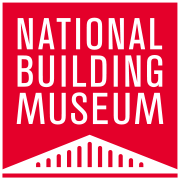The Museum provides children with hands-on learning opportunities to develop their understanding of the shared built environment and empower them in shaping that environment. To learn more about our offerings, view program descriptions below or download a copy of our student programs booklet.
Visit the Museum with a School Group
After reading the information below, scroll down and click “Request a Field Trip” to fill out our online request form. Field trip requests are taken on a first-come, first-served basis. Payment must be received to confirm a field trip date.
School groups can take field trips on Mondays, Wednesdays, Thursdays, and Fridays. Please note that the Museum Exhibitions are closed on Wednesdays for self-exploration.
There are three levels of experiences offered at this time:
- Explore: bring students to self-guide the exhibitions (no facilitation)
- Cost: $5 per student, 1 free adult for every 5 students (additional adults are $5)
- Title I schools: $3 per student, 1 free adult for every 5 students (additional adults are $5)
- Cost: $5 per student, 1 free adult for every 5 students (additional adults are $5)
- Discover: book a 45-minute lesson facilitated by a Museum Educator. Does not include full exhibition access.
- 3 Little Pigs (grades preK3-K): Using interactive storytelling of this classic tale, children will learn the parts of a house, the strength of different materials, and how we choose materials for a structure.
- Cost: $50 per group (max 20 students)
- Discover Building Stories (grades prek4-3): Our newest exhibition, Building Stories, connects children’s storybooks and the built world through a series of unexpected, playful, and visually inspiring installations. Guided by a museum educator, this program will immerse students in a place where literacy and architecture intersect.
- Cost: $150 per group (max 20 students)
- Title I schools: $75 per group
- Limited availability: this program is only available on Wednesdays or Thursdays at 9am and Fridays at 9am.
- Cost: $150 per group (max 20 students)
- 3 Little Pigs (grades preK3-K): Using interactive storytelling of this classic tale, children will learn the parts of a house, the strength of different materials, and how we choose materials for a structure.
- Engage: book a two-hour program facilitated by a Museum Educator for a maximum of 50 students in one trip (more students may be accommodated depending on the spaces available on the date requested). Includes self-guided exhibition access before or after the two-hour program.
- Cost: $225 per package (one package is required for every 25 students; 1 adult is required for every 10 children and 1 adult is free for every 5 children; additional adults are $5)
- Title I schools: $125 per package
- Programs available:
- My House, My Home (grades PreK4-1): Students will explore the process, tools, and materials used to construct homes before building a home of their own. Guided by a museum educator, students begin to see connections between school curriculum and their own community. This program is available for students ages 4 and up.
- Patterns, Patterns Everywhere (grades PreK3-1): Our built environment is made up of combinations of patterns. By learning to recognize shapes and patterns in the built environment, students will become better equipped to “read” buildings and their surroundings, and understand the meanings and associations that building forms are meant to convey.
- City by Design (grades 1-6): Students will become city planners for the day as they design their own model city. Students consider the problems a city can have and offer solutions by planning their own community. They use their imaginations to design and construct model buildings for the city using colorful supplies and recycled materials. This program meets content standards for social studies, language arts, technological literacy, and visual arts.
- Arches & Trusses & Bridges (grades 3-8): Students will assume the role of an architect to investigate how materials, invisible forces, geographic factors, cost, and aesthetics work together to form stable and safe structures. The knowledge they construct during the program can also be used to analyze other buildings and bridges they encounter in the future.
- Designing for Disaster (grades 3-8): Recent natural disasters continue to underscore the importance of preparing for and understanding the way in which structures respond during natural hazards. In this program, students will learn about methods engineers have devised to create earthquake resilient buildings, then construct and test their own buildings using a shake table.
- Coming in early 2025 – Build Your Story, a two-hour program that involves exploring the Building Stories exhibit and making a hands-on craft
- Cost: $225 per package (one package is required for every 25 students; 1 adult is required for every 10 children and 1 adult is free for every 5 children; additional adults are $5)
Please contact school@nbm.org with questions.
Request a Field Trip
Developed in conjunction with the Museum’s 2019 exhibition Evicted, this teaching guide provides tools and resources to engage 6th–12th grade students in analyzing, discussing, and proposing solutions to the complex social issue of eviction in the U.S. The guide includes background information from the exhibition and a format for facilitating open collaborative inquiry that can be applied to other topics.
Download a printable version of the teaching guide (PDF)
Learn more
St. Elizabeths Teaching Guide
Developed in conjunction with the Museum’s 2018 exhibition Architecture of an Asylum: St. Elizabeths 1852–2017, this teacher guide includes historical information and activities that focus on understanding the connection between a space’s design and how people use and interact in it. Students analyze primary sources like historical photographs, maps, and architectural drawings to research the theory of moral treatment and architecture to treat mental illness at St. Elizabeths.
Download the lesson plan (PDF)
Download the images and resources (PDF)
This teaching guide was generously supported by the General Services Administration.
